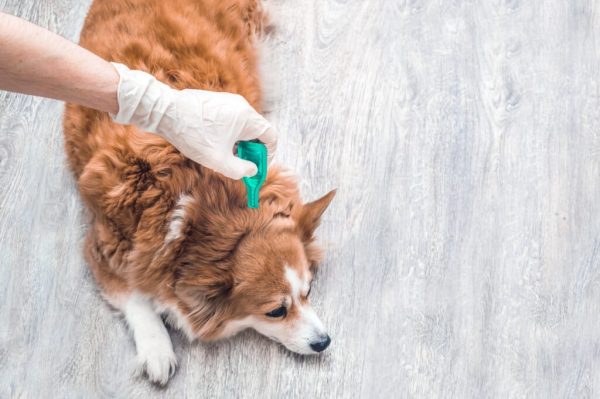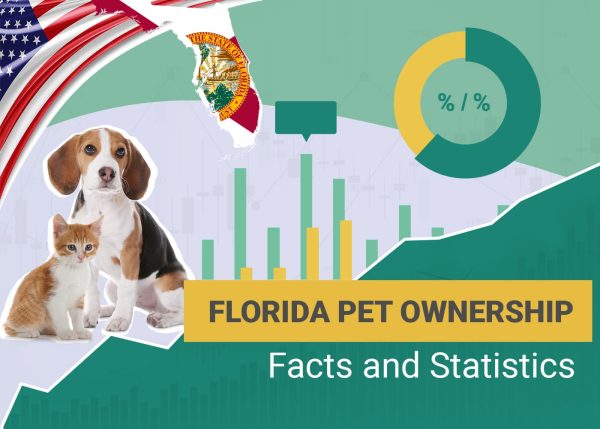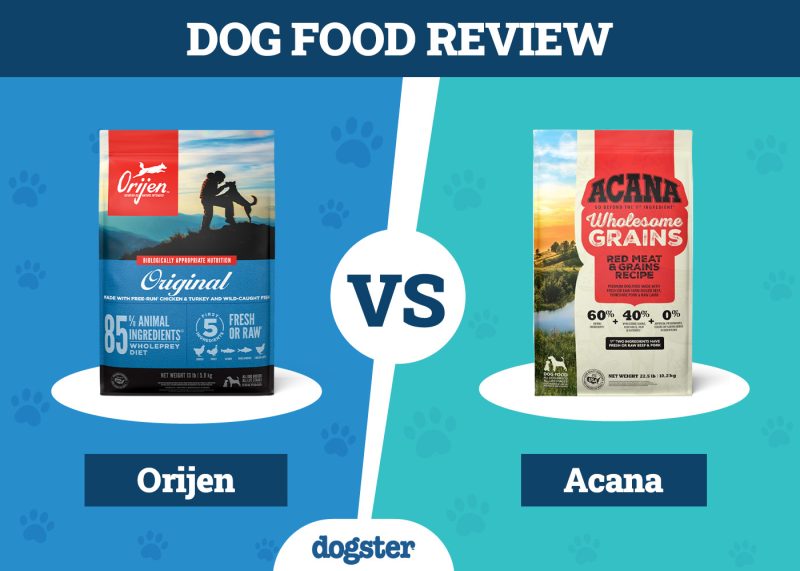Buying a puppy from a pet store isn’t what it used to be. What was once an easy decision and a fun way to surprise the family is now receiving criticism for its ethical issues. As the business of puppy mills supplying many pet stores came to light, so too did the questions about animal welfare and irresponsible breeding practices.
Despite significant decreases in pet store dogs through consumer action and legislation, select stores still specialize in selling puppies as products. Let’s discuss the current state of the industry and the crucial considerations surrounding whether you should or shouldn’t buy a pet store puppy.

Where Do Pet Store Puppies Come From?
Pet store puppies typically come from puppy mills. The commercial dog production facilities focus on making a profit, treating puppies as traditional goods to net as much value as possible. Unlike a small-time non-commercial breeder, these entities have little regard for health testing, socialization, and essential welfare considerations.

The 4 Important Considerations
1. Poor Upbringing
Responsible dog breeders think that 8 weeks is the earliest you could consider adopting a puppy. However, most recommend waiting at least 10–12 weeks. Dogs have a crucial socialization period with their mother and litter in these early weeks. They learn fundamental communication skills, fear responses, and behaviors they’ll carry through adulthood. Frequent positive human interactions are equally critical to developing a people-friendly temperament.
Unfortunately, puppy mills don’t prioritize those factors. In many instances, dogs are separated from their litters prematurely. Even if they are old enough for adoption, there’s no guarantee as to the socialization they have had. As a result, pet stores can sell maladjusted and temperamental dogs, presenting unexpected training challenges.
Studies have revealed behavioral differences between puppies from pet stores and breeders.1 Compared to noncommercial breeder dogs, pet store animals are likelier to show human-directed aggression, dog-related fear and aggression, and separation-related disorders.
2. Poor Quality Control
Reputable breeders who work directly with customers provide full disclosure. Routine testing on parents and offspring is standard for many to ensure their dogs won’t have any unexpected health issues.
They let potential buyers tour their facilities and meet the puppy’s parents, giving insights into the care and preparation going into their dogs. Therefore, buyers can feel more confident about the health traits the puppies inherit and their temperament.
Pet stores rarely, if ever, provide in-depth looks into their puppies’ backgrounds. There’s often little information around pedigrees, leaving room for unpredictable results. Alongside health issues, puppies can grow up showing surprising physical or behavioral traits that could make you second-guess your purchase.

3. Minimal Enforcement
Pet stores often tout their puppy sources as “USDA-licensed breeders” as if the label indicates any reputability. In truth, it only means the government granted the business a license to sell puppies for profit.
Businesses with more than four “breeding females” that sell their pets wholesale need USDA licensing. Essentially, it is necessary for large-scale operations that don’t let you see the puppies beforehand. In many ways, advertising this aspect can be a red flag that the dogs come from a puppy mill.
The USDA uses inspections to enforce rules under the Animal Welfare Act as part of its licensing requirements. However, the agency has also been criticized for its lax enforcement and regulations.
In Iowa, for example, the laws for dog enclosures are much more relaxed for USDA-licensed breeders who sell to brokers than the state-licensed breeders who only sell within the state.
4. Disease Outbreaks
Due to puppy mill breeding and housing practices, pet store puppies have a unique exposure to various diseases affecting dogs and people. A 2021 study found that 88% of Campylobacter jejuni infection cases came from people who came into contact with pet store puppies.
In particular, the researchers noted that a drug-resistant strain of the disease was an increasing public health threat, urging the commercial dog industry to take action to prevent its spread.
Cases of canine distemper have occurred in pet stores due to squalid living conditions and easy cross-contamination between individuals. Dogs may be more prone to contagious infections like parvo or come into contact with various parasites by living in cramped, unsanitary cages. For your health and your dog’s, buying from a breeder or adopting from a shelter is considered a much safer option.

Frequently Asked Questions (FAQ)
Why Do You Want a Pet Store Puppy?
The inherent risks of pet store puppies are stark. They’re unpredictable in nearly every way, from their temperament to their health, so you should consider why you want to buy from a pet shop.
Pet store puppies have some benefits for buyers. There’s a convenience factor and a unique chance to look through various “purebred” puppies to find the desired breed. But you’re trading uncertainty for an upfront benefit.
When you’re stuck for years with a dog with frustrating, expensive, and time-consuming health or behavioral issues, you’ll realize the value of putting in the effort to work with a reputable breeder.

Is It Bad to Rescue a Pet Store Puppy?
While you may find the perfect puppy at the pet store, taking your business to shelters and responsible local breeders is a more ethical route. Every pet store puppy purchase promotes mills and farms. When a “product” leaves the shelves, they see that as demand, encouraging them to continue supplying stores with their poorly raised puppies.
Do Pet Stores Still Carry Puppies?
Fewer pet stores carry live animals like cats, dogs, and birds, as awareness around animal welfare has significantly changed public attitudes. Now, more local and state governments are instituting legal bans on pet store animal sales and enforcing stricter breeding laws. Pet store puppy sales are illegal in numerous cities, counties, and even several states, including:
- California
- Oregon
- Washington
- Maine
- Maryland
- New York
- Illinois
California was the first to institute a ban in 2017. But even before then, many pet stores began phasing out cat and dog sales in light of public pressure. You can still find dogs and cats in stores, but many businesses source from local rescues and shelters. They’ll showcase their dogs and sell them without profit to find them good homes.
Should I Buy a Pet Store Puppy?
Businesses like Petland put dogs and owners at risk while perpetuating animal abuse and irresponsible overbreeding. Meanwhile, other stores host shelter animals. In those cases, adopters enjoy convenience and ethical sourcing.
Deciding to buy a pet store puppy isn’t black and white. It all depends on your research. You can investigate how your pet store acquires its dogs. If the dogs come from local animal welfare groups, you can feel confident you’re helping a worthy organization and a dog in need without promoting the business of puppy mills.
Avoid stores that don’t feature shelter or rescue puppies. Be wary of advertised “USDA-licensed breeders” or vague “home-raised” claims, and ask questions about the dog’s background and upbringing.
If you can’t get legitimate answers, don’t give the store any of your business. Getting a puppy mill dog will only set you and your family up for disappointment and put the dog at further risk.

Petland and Puppy Mills
While some small businesses still sell dogs and cats, Petland is the only national puppy retailer. The company claims they source from “family-raised” litters. However, humane societies and animal advocates have repeatedly accused the company of working with mills and animal cruelty.
Still, Petland lobbies for relaxed breeding laws and the right to sell. Its influence is so significant that many consider it the main driver of the continued puppy mill industry.


Final Thoughts
Pet store puppies look cute in the window, but businesses do everyone a disservice by regarding a living creature as little more than an impulse purchase. You and the dog deserve better. Through the extra effort to buy from a breeder or adopt from a shelter, you’ll promote responsible ownership, find a healthier and more socialized puppy, and make a meaningful impact on dogs everywhere.
Featured Image Credit: Soloviova Liudmyla, Shutterstock



















